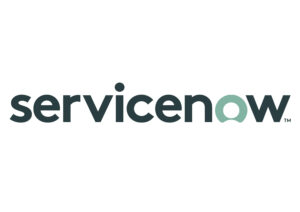Lessons from History: Economic Challenges and the Field Service Industry
In the face of a global recession, the field service industry finds itself navigating uncharted waters, or do we? Are there lessons to learn from previous eras of global economic failure…
The economic downturn has far-reaching implications, and organizations across various sectors must grapple with significant challenges.
In this chapter, we will examine the impacts of the recession on the field service industry, explore the historical context of field service transformation, discuss the supply and demand dynamics driving labor costs, emphasize the importance of customer satisfaction, and touch upon the evolving sustainability elements and ecosystem thinking.
1929: The Great Depression:
Economic downturns have had a long-standing impact on service organizations throughout history. One notable example is the Great Depression in 1929, which brought about widespread economic distress. Service organizations faced immense challenges during this period as consumer spending plummeted, businesses struggled to survive, and unemployment rates soared.
The focus shifted from growth and expansion to survival and cost reduction. Field service operations were heavily affected, as organizations had to cut back on expenses and find ways to operate with limited resources. This era marked a crucial turning point, highlighting the need for service organizations to adapt and find innovative ways to weather economic storms.
Indeed, as far back as the Great Depression, we have seen that organizations face significant challenges in sustaining their operations and navigating financial uncertainties in times of economic downturn.
During the Great Depression, businesses across all industries experienced a severe contraction in consumer spending and faced immense financial hardships.
This economic crisis led to a paradigm shift in how organizations approached maintenance.
To preserve capital and reduce costs, organizations shifted their focus towards maintaining and extending the lifespan of their existing assets. The emphasis on maintenance became paramount as companies sought to maximize the value of their equipment and infrastructure without incurring additional expenses.


Data usage note: By accessing this content, you consent to the contact details submitted when you registered as a subscriber to fieldservicenews.com to be shared with the listed partner of this premium content ServiceNow who may contact you for legitimate business reasons to discuss the content of this paper.
"Maintenance departments played a crucial role in this transition by adopting strategies that prioritized preventive and predictive maintenance practices...."
By implementing preventive maintenance practices and optimizing asset performance, organizations aimed to minimize downtime, improve operational efficiency, and enhance their financial resilience during this tumultuous period.
2007: The Great Recession:
During the Great Recession, which occurred from 2007 to 2009, the global economy again experienced a severe downturn. As businesses faced financial instability and uncertainty, they were forced to make difficult decisions to reduce costs and streamline operations. The impact of the recession extended to the maintenance sector, as organizations sought ways to preserve their capital and maximize the lifespan of their existing assets.
In response to the economic downturn, companies shifted from investing in new equipment and machinery to maintaining and optimizing their existing assets. This shift was driven by the need to prolong the useful life of equipment, minimize capital expenditures, and extract maximum value from their current resources.
Maintenance departments played a crucial role in this transition by adopting strategies that prioritized preventive and predictive maintenance practices.
Rather than solely relying on reactive maintenance, where equipment failures are addressed after they occur, organizations embraced proactive maintenance approaches.
By implementing preventive maintenance schedules and leveraging predictive maintenance technologies, companies aimed to identify potential issues before they caused significant disruptions or failures. This shift allowed organizations to reduce downtime, improve asset performance, and optimize maintenance expenditures.
Moreover, the emphasis on maintenance during the Great Recession led to a shift in mindset from a short-term cost-cutting approach to a long-term investment perspective. Organizations recognized that adequately maintaining and servicing their assets could result in long-term cost savings and operational efficiency. By adopting a strategic approach to maintenance, companies could extend their equipment’s lifespan, minimize the need for costly emergency repairs, and enhance overall asset reliability.
The Great Recession’s impact on maintenance practices extended beyond immediate cost-saving measures.
It sparked a broader shift in organizations’ perception of maintenance as a critical function contributing to operational resilience and cost optimization. This change in mindset continues to resonate even in post-recession periods, with companies recognizing the long-term benefits of proactive maintenance in sustaining business continuity and driving profitability.
"Historically, field service operations were often seen as cost centers, focused primarily on maintaining assets and addressing service requests. However, a significant shift began to emerge during the 2008 financial crisis..."
Learning from the past, to overcome challenges today:
The lessons from historical economic downturns provide valuable insights for field service organizations today.
They underscore the importance of resilience, adaptability, and strategic decision-making in the face of economic challenges. Organizations that have thrived during difficult times have often been those that have embraced innovation, invested in efficiency-enhancing technologies, and placed a strong emphasis on customer satisfaction.
Historically, field service operations were often seen as cost centers, focused primarily on maintaining assets and addressing service requests. However, a significant shift began to emerge during the 2008 financial crisis.
As organizations faced intense cost pressures and sought new revenue streams, they recognized the untapped potential of their field service operations. Once considered a necessary expense, field service transformed into a strategic business unit capable of generating profits. Companies realized that delivering exceptional service experiences could differentiate themselves in the market, increase customer loyalty, and drive revenue growth.
Another consideration in today’s market setting is that as the field service industry evolves, sustainability elements are emerging as a critical factor both in winning and retaining service contracts.
In this regard, that were perceived as best-practice initiatives only a few years ago are rapidly transitioning into what could increasingly become regulated mandates.
Organizations now must reduce their carbon footprint, optimize resource utilization, and adopt environmentally friendly practices. These sustainability efforts of course, contribute to a greener future, but also importantly align with customer expectations and regulatory requirements. Field service organizations must embrace eco-friendly technologies, implement efficient routing and dispatching processes, and adopt a holistic approach to sustainability in their operations.
Ecosystem thinking and collaboration with trusted solution partners have become increasingly important in the field service industry. Recognizing that no organization can thrive in isolation, companies are embracing the concept of ecosystem partnerships.
Servitization, the shift from selling products to providing comprehensive services, has gained traction, emphasizing the need for collaboration among multiple stakeholders. Field service organizations are forming alliances with solution partners with expertise in technology, software, data analytics, or specific industry domains.
"By cultivating strong and collaborative relationships with solution partners, organizations can adapt to changing market dynamics and remain at the forefront of innovation...."
These partnerships enable organizations to deliver end-to-end solutions, enhance service quality, and capitalize on new business opportunities.
Working with trusted solution partners becomes paramount in this dynamic landscape, where servitization and ecosystem thinking shape the field service industry.
Field service organizations can leverage their partners’ domain knowledge, technological capabilities, and industry insights to unlock new avenues for growth, streamline operations, and deliver value to their customers.
By cultivating strong and collaborative relationships with solution partners, organizations can adapt to changing market dynamics and remain at the forefront of innovation.
As we progress through this white paper, we will delve deeper into the tools and strategies that unlock productivity, optimize field service operations, drive return on investment, and embrace sustainability.
We will explore the role of automation, predictive analytics, and emerging technologies in transforming field service into a lean, efficient, and customer-centric operation. Additionally, we will examine the importance of collaboration with solution partners and the integration of customer and employee experiences in driving operational success.
Organizations can navigate the economic challenges by recognizing the historical shift of field service from a cost center to a profit generator, understanding the labor supply and demand dynamics, emphasizing customer satisfaction, and embracing sustainability elements and ecosystem thinking.
The subsequent chapters will provide a comprehensive exploration of the strategies and technologies that enable organizations to thrive in the era of global recession.
Reflective Questions for you to apply the themes discussed here to your own organisation:
#1: Reflecting on historical economic downturns, what steps can you or your organization take to anticipate and address potential impacts on your service operation during the current recession?
#2: How can you or your organization navigate the supply and demand dynamics of labor costs in your service operation?
#3: Considering the increased importance of customer satisfaction and service quality in times of economic uncertainty, what steps can you or your organization take to ensure you consistently deliver exceptional experiences?
#4: What steps can you or your organization take to incorporate sustainability elements into your service operation, aligning with evolving best practices and regulatory mandates?
#5: In what ways can you or your organization embrace ecosystem thinking and cultivate strategic partnerships to positively impact and transform your service operation?
Do you want to know more?
If you are already a subscriber you can access the report instantly on the ‘read now’ button below. If the button is showing ‘Join FSN FREE’ please log-in and refresh the page.
If you are yet to subscribe simply click the button below and complete the brief registration form to subscribe and you will get instant access to this report plus a selection of premium resources each month completely free.


Data usage note: By accessing this content, you consent to the contact details submitted when you registered as a subscriber to fieldservicenews.com to be shared with the listed partner of this premium content ServiceNow who may contact you for legitimate business reasons to discuss the content of this paper.


